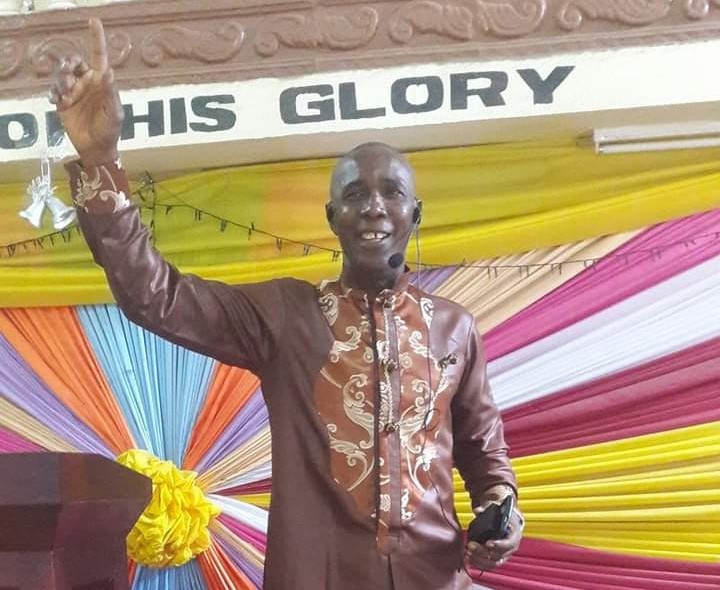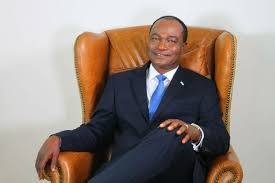Sierra Leone moving forward
In September 2007 the All People’s Congress (APC) came back to power through the ballot box, since the party was overthrown in a coup de tat by the military in 1992. (Drawing: The Free Health Care initiative is expected to reduce infant and maternal mortality)
The presidential and parliamentary elections held in August were generally regarded as free and fair, and added a big plus to Sierra Leone’s democratic credentials as a developing nation. Taking the oath of office for the first time, following an unprecedented victory for himself and his APC party, President Ernest Bai Koroma called for change in all sectors under a development programme he dubbed ‘Agenda for Change’.
According to the President, Sierra Leone must move forward and he called for the co-operation of all citizens, including the major opposition Sierra Leone People’s Party (SLPP), and the private sector and development partners.
The President’s declared aim is to bring about a major turn-around in all sectors and a significant improvement in the overall quality of life for all Sierra Leoneans.
However, to make this possible, much needs to be done and the President is showing a determination to back actions with words. The small West African country is rich in mineral and marine resources, and it has great tourist and agricultural potentials.
However, Sierra Leone is continuously ranked among the world’s least developed nations by the UN, on the basis of such factors as education, life expectancy and per capita income.
Now, three years of the Koroma administration, massive development projects are underway and major improvements are beginning to show, especially in the energy, health, road and mines sectors.
Factories and essential services are also picking up 10 years after the war ended.
Once regarded as probably the darkest and filthiest city in the world, major parts of Freetown now enjoy improved supply of electricity and an efficient waste manage system has been put in place. The energy and waste management projects are being replicated in other parts of the country and by 2011, when the country celebrates its 50th year of Independence, most of the country is expected to light up under an ambitious rural electrification programme.
The entire road network, including major and feeder roads, is also under maintenance and construction; and the mines have attracted major international mining companies including African Minerals Ltd. and London Mining Company Ltd. These companies, mainly investing in the country’s huge iron ore reserves, have signed long term contracts with the government of Sierra Leone and are expected to boost export earnings, GDP, infrastructural development and reduce unemployment.
Like his predecessor, President Koroma wants the nation to feed itself. Once an exporter of rice, Sierra Leone now virtually imports everything including rice. The war destroyed agriculture, with extensive displacements of farm labor. But the President has accelerated the nation’s food security drive through an increase in budgetary allocation and through ancillary programmes such as the small holder commercialisation programme (SCP), tractorisation and rehabilitation of feeder roads.
All sectors of the economy are open to foreign investment and it’s now more than easy to do business in Sierra Leone.
But at the top of President Koroma’s action list is the need to curb the culture of corruption that has plagued the country since Independence and for Sierra Leoneans to change their attitude.
Sierra Leone ranks 150th out of 180 according to Transparency International’s 2009 Corruption Perceptions Index.
On his inaugural address to the nation, President Koroma declared ‘zero tolerance’ on corruption and led by example by voluntarily declaring his assets. He further strengthened the country’s Anti Corruption Commission by giving it prosecutorial powers and more autonomy. In a short while, the ACC recouped hundreds of millions of Leones from corrupt officials. But, in addition to a lack of sustained prevention campaign, prosecuting high profile state functionaries still pose a major challenge for the Commission.
To encourage Sierra Leoneans to change their attitudes, the president created the Attitudinal and Behavioural Change (ABC) secretariat at State House. To bring government closer to the people, the president, with support from UNDP, created the Open Government Initiative (OGI). To woo Sierra Leoneans in the Diaspora to come back home and contribute to nation building, President Koroma established the Office of the Diaspora, and to tackle the country’s thorny youth issue he established the Youth Commission.
Giving a report card of his three years stewardship in a nationwide address marking his government’s third anniversary, President Koroma said his government will not rest until Sierra Leone lives up to the true extent of her potentials.
The UN as well as the World Bank and IMF have praised the remarkable progress being made. In a recent visit to Freetown, UN Secretary General Ban Ki-Moon hailed Sierra Leone as a great example of a post-conflict recovering, peace-making, peace-keeping and peace-building nation.
“Sierra Leone has become a role model for peaceful development and stability in the region. This country has set a good example of multi-lateral approach to consolidating peace that can be emulated elsewhere,” said Ban Ki-Moon.
But lack of real opportunities for the youths, who constitute more than half of the country’s population and most of who are unskilled and unemployed, coupled with an economy that less favored the average Sierra Leonean, still threatens the peace and stability of the state.
Moreover, the big test still remains as the next two years will prove. In 2011 the country will observe its golden jubilee Independence and the following year, 2012, it will go to the polls for another round of presidential and parliamentary elections.
By Ahmed Sahid NASRALLA (de MONK)
Stay with Sierra Express Media, for your trusted place in news!
© 2010, https:. All rights reserved.







